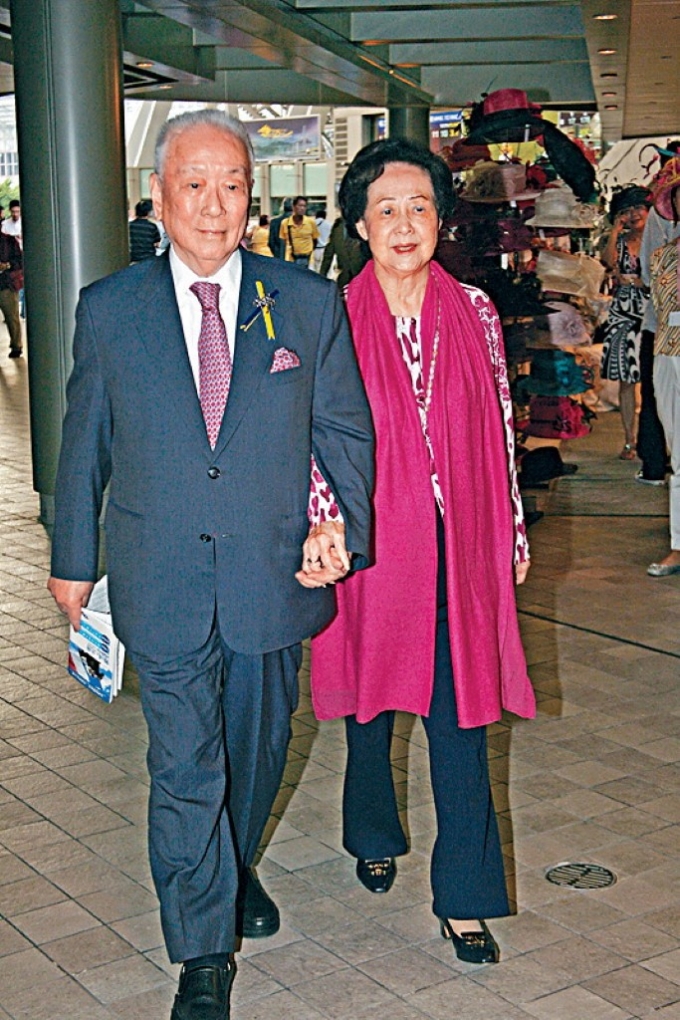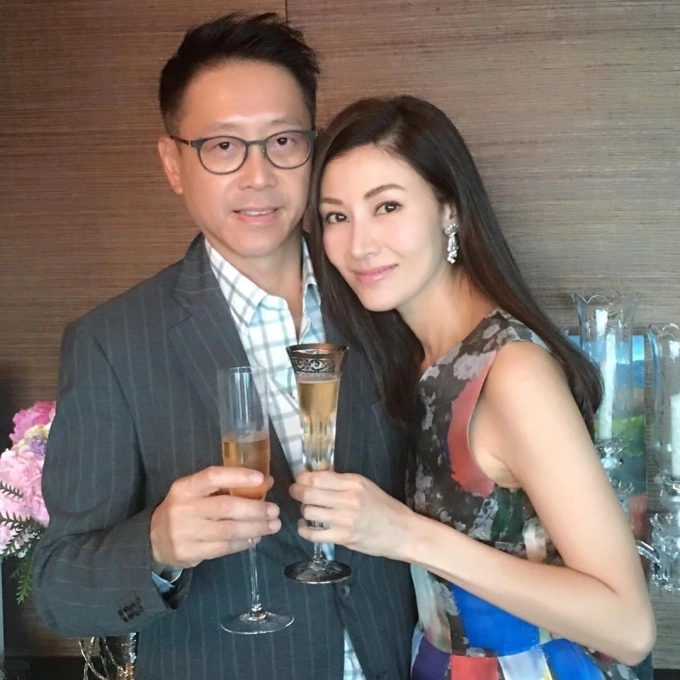Instead of dividing his wealth among heirs as is typical, Hui placed his entire fortune into a trust that pays HK$2 million per month for fifteen members of his family, including his son Julian Hui, according to 163.
This decision by the tycoon, who died at age 97 in 2018, shocked the Hong Kong media, which at the time called him a “stingy billionaire,” while Julian and his wife became the subject of ridicule.
But those familiar with the family’s history know that the way Hui handled his assets reflected his character, long-term vision and deep understanding of his son’s personality.
 |
|
Hui Sai Fun, left, Chairman of Central Development Limited, and his wife are pictured in Hong Kong, China, Oct. 4, 2009. Photo by Imaginechina via AFP |
The Huis’ fortune started from Hui’s father, Hui Oi Chow, who was born into a family of farmers in southeastern China’s Guangdong Province.
Due to financial difficulties, Oi Chow could not afford formal education in his early years. At just over 10 years old, he followed his father to the docks to work as a porter, carrying and transporting goods.
During his years toiling at the port, he spotted an opportunity from the growing wave of coastal trade and saved up to buy his first cargo ship, officially stepping into the maritime transport industry.
He subsequently expanded his business to include dozens of large vessels and operations spanning Southeast Asia, Europe, and America, earning the title of the “king of ships,” per The Standard. He later branched into real estate with Central Development.
Hui was the youngest of Oi Chow’s three sons but possessed the best business acumen. After his two elder brothers passed away early, Hui took over the business.
Unlike his father, Hui lived a very low-profile life, rarely appearing in public, according to Tatler Asia.
He did not fall into the trappings of wealth like many other rich heirs. He understood that maintaining wealth was even harder than amassing it, so he worked diligently to preserve his father’s legacy.
Amid market fluctuations, he chose a path of stability and stuck to logistics and property.
He later decided to sell the shipping business for hundreds of millions of Hong Kong dollars and doubled down on real estate.
Through his strategy to buy cheap and hold out for the long term, he gradually built up a portfolio of high-quality assets. He also ventured into banking and media.
His skillful management led the family business to prosper and propelled him into the ranks of Hong Kong’s top 10 billionaires.
He and his wife had two sons and a daughter. The eldest son, once groomed as heir to the empire for his early talent and the high expectations Hui had for him, died of illness in 2014. With no alternative, Hui turned to Julian to carry on the legacy.
But unlike his elder brother, Julian, who was pampered from a young age, lacked diligence and showed little interest in the business world.
Known as a “playboy heir,” he often appeared at parties and was frequently subjected to rumors of romantic ties with celebrities.
In 1991, he wed Pansy Ho, daughter of the late “Casino King” Stanley Ho, in a union facilitated by his father to establish a business alliance. The marriage, however, was unhappy and ended some years later.
In 2008, Julian married Michele Reis, the Miss Hong Kong 1988 who has been embroiled in multiple scandals, despite his parents’ opposition.
This made Hui even more concerned about the family’s reputation and future. In his eyes, his youngest son lacked the ability and responsibility to manage the family’s wealth while his daughter-in-law’s image and past could negatively affect their standing.
 |
|
Miss Hong Kong 1988 Michele Reis (R) and her husband Julian Hui. Photo from Reis’ Instagram |
Seeing clearly that his son could not be relied on to safeguard his fortune, he decided to set up a trust fund to ensure safety and long-term growth and prevent losses from poor management or wasteful spending.
The fixed monthly allowances not only guarantee a comfortable life for descendants but also curb extravagant living and encourage them to strive for more.
This practice is not rare among the ultra-wealthy in Hong Kong and across the globe. The family of Stanley Ho, for instance, also set up a trust when he passed away so that his children would only receive a certain sum each month.
Despite the Hui’s restrictions, Julian still lives in luxury with his wife, residing in a family-owned duplex apartment, moving in elite circles and avoiding major financial scandals.
For the late magnate, the greatest legacy he left behind was not merely HK$42 billion, but a mechanism to help preserve a fortune across generations.




